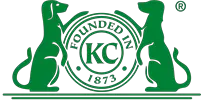Labernard History
The Labrador Retriever is a breed of medium to large-sized gundog that was originally developed as a working retriever for fishermen. The Labrador was recognized by the English Kennel Club in 1903, and by the American Standard in 1917. In 1917, the AKC officially recognized the “Labrador Retriever”, but did not distinguish between the two varieties.
Labernard Physical Characteristics
The Labrador Retriever is a medium-sized, short-coated breed of gundog that was originally bred as a working retriever. The breed is known for its intelligence, trainability, and friendly temperament. The labrador is very large, with males standing 23 to 26 inches at the withers and weighing 65 to 75lbs. Females stand 21 to 25 inches at the withers and weigh 55 to 75lbs. They are known to be friendly, energetic, and eager to please.
Eye Colors
Brown
Nose Colors
Black
Coat Colors
Red, White, Black, Fawn, Brown
Height Range
Male Height Range: 25 – 27 inches
Female Height Range: 23 – 25 inches
Weight Range
Male Weight Range: 102 – 220 lbs
Female Weight Range: 98 – 215 lbs
Labernard Health
Description of breed health.
Lifespan
8-12 yrs
Labernard Health Concerns
Gastric Torsion, Hip And Elbow Dysplasia, Otitis Externa, Entropion, Cataracts, Progressive Retinal Atrophy (PRA)
Labernard Temperament and Behaviour
The Labrador Retriever, or Lab for short, is an intelligent, loving, and athletic dog. They are often known to be very playful and outgoing, and they love being around people. They are generally considered to be a good-natured and even-tempered breed. They are easy to train and are known to be very eager to obey. They are highly adaptable to new environments, and do well with families, children, and other pets.
Labernard Activity Requirements
Labrador Retrievers are one of the most popular breeds in the United States, and for good reason. They are intelligent, friendly, and loyal, making them great family companions. While they aren’t a high-energy dog, they do require regular exercise. A daily walk or run will help your Lab maintain their health and a healthy weight. They are also well suited to living in a home with a yard. If you are looking for a playful and energetic dog, a Labrador Retriever may not be the best choice. However, if you are looking for a sweet, gentle companion, a Lab may be the perfect fit.
Miles Per Day
15 miles
Activity Per Day
45 minutes
Daily Food
4 cups
Kennel Club Recognition

American Kennel Club
Not Recognized
Labernard is part of the Unclassified group.
Visit the American Kennel Club website.

The Kennel Club
Not Recognized
Labernard is part of the Unclassified group.
Visit the Kennel Club website.

Australian National Kennel Council
Not Recognized
Labernard is part of the Unclassified group.
Visit the Australian National Kennel Council website.

Canadian Kennel Club
Not Recognized
Labernard is part of the Unclassified group.
Visit the Canadian Kennel Club website.